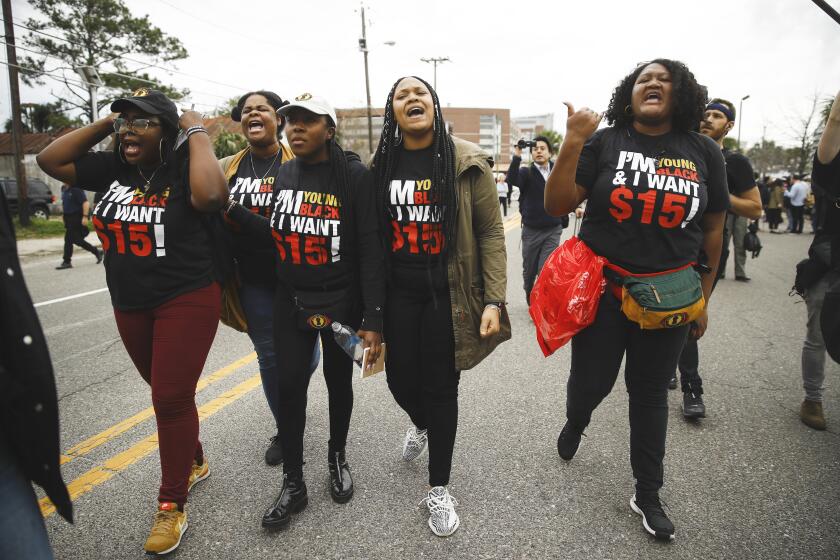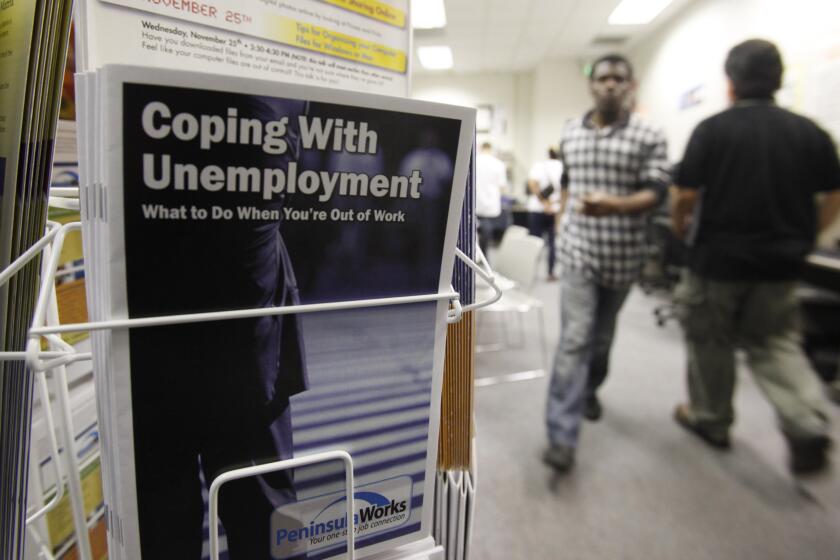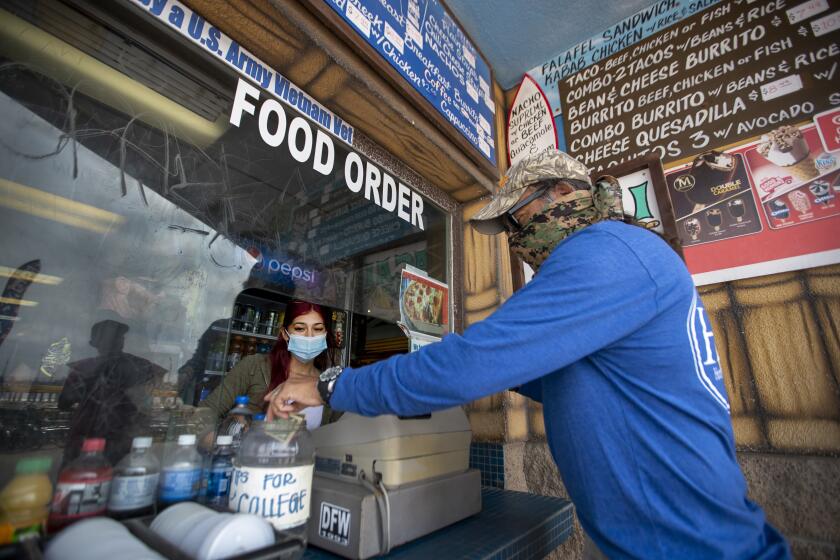West Hollywood OKs highest minimum wage in the country for some workers: $17.64 an hour
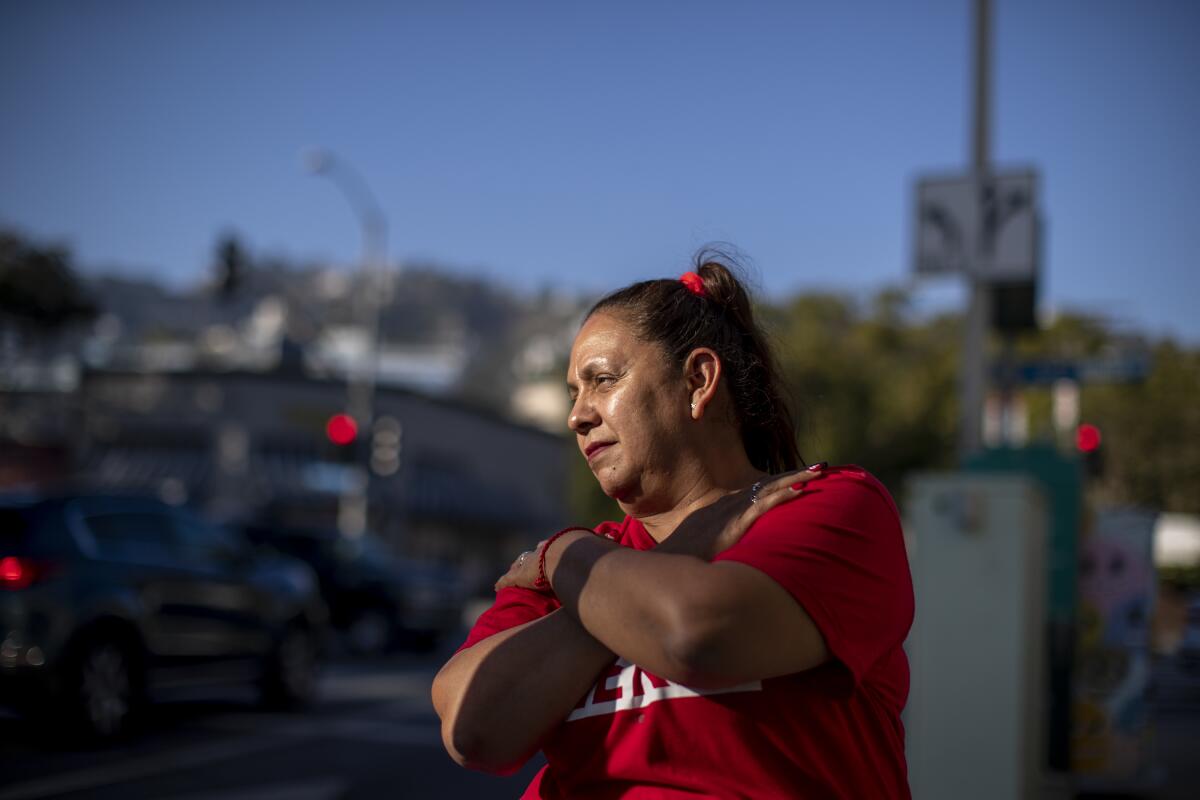
- Share via
In a bold but polarizing move, the West Hollywood City Council unanimously approved a minimum wage hike that will boost pay for hourly employees of hotels, restaurants and other businesses as soon as January.
The decision, which came at the end of a meeting that ran into the early morning hours Thursday, will bring some of the area’s workers to $17.64 an hour, the highest in the nation.
For the record:
1:54 p.m. Nov. 5, 2021An earlier version of this article reported that California’s minimum wage will increase to $14 per hour in January for employers with 26 or more employees. The increase in January is to $15 per hour.
Many celebrated the increase as a meaningful step for low-wage workers — who bore much of the brunt of the pandemic and who, in some industries, have been subjected to increasingly aggravated customers who are tipping less.
The decision is “life-changing,” said Sandra Pellecer, a single mother from Guatemala who often struggled to make ends meet during 16 years as a cook in area hotels.
“Not only is it going to support me and hotel workers across the city, but also it’s going to help all workers across West Hollywood earn a better wage,” said Pellecer, who lost her job during the pandemic and is looking for a new position.
Working people should get paid at least enough to afford the essentials for themselves and their families.
But others expressed concerns that the increase would cripple businesses already hurting from the COVID-19 pandemic.
Brett Latteri, owner of the Den restaurant and bar on Sunset Boulevard, said he was generally in favor of increasing the minimum wage. But he worried that a rapid wage hike would force businesses to respond by raising prices, reducing service, cutting hours or closing for good.
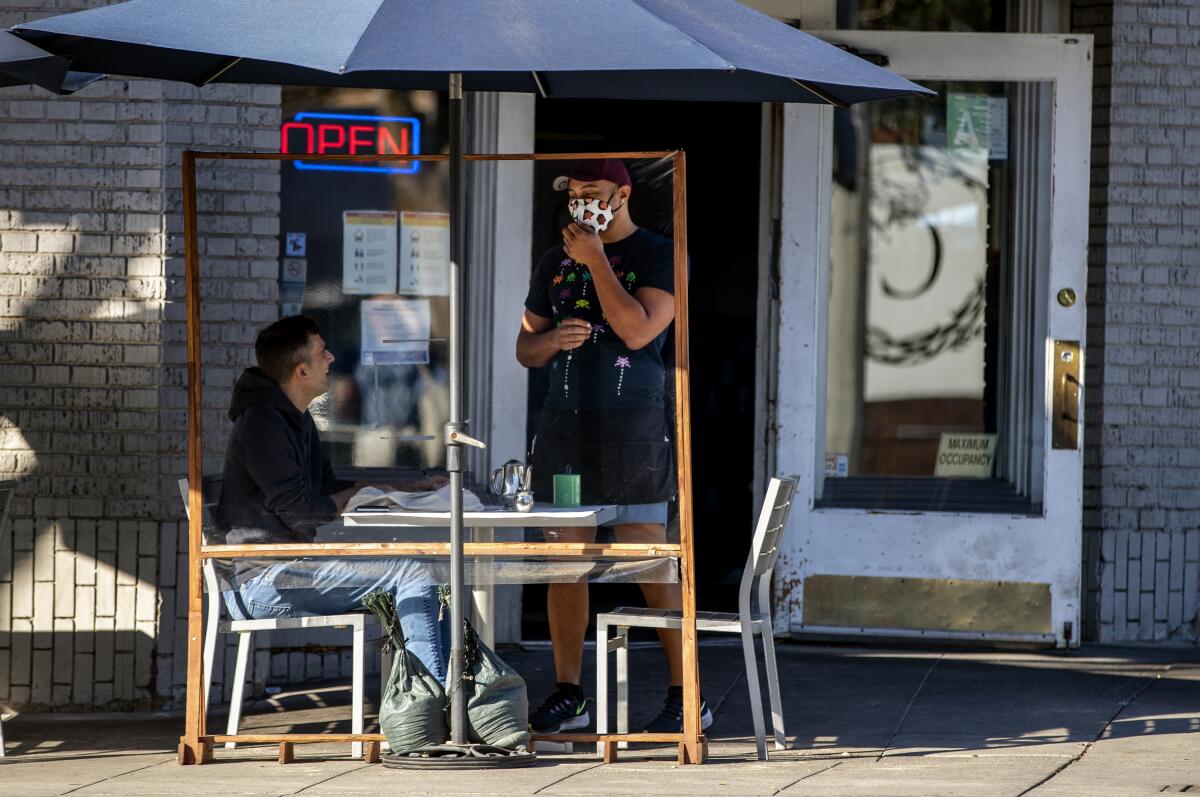
“It’s a flawed policy, and it’s going to do more harm than good,” Latteri said. “The biggest single threat to the local economy in West Hollywood is a wage hike of this magnitude so fast.”
The new wages will go into effect in 2022 and will be broken into categories, including hotels, large businesses and small businesses.
Large businesses are defined as having 50 or more employees, while small businesses have 49 or fewer.
Beginning Jan. 1, hotel workers will receive $17.64 per hour, bringing them into alignment with Los Angeles and Santa Monica, which implemented the rate in July.
The number surpasses Emeryville, Calif., which currently has the highest minimum wage rate in the country at $17.13.
Wages in January will also increase to $15.50 for workers at large businesses and $15 for workers at small businesses. Those groups will see incremental increases every six months, bringing them to $17.50 and $17, respectively, by January 2023.
The goal is for all groups to be at the same rate by July 2023, said Sepi Shyne, West Hollywood’s mayor pro tem. That rate should be around $18.77 an hour, keyed to the consumer price index.

“There’s so much income inequality in the United States, and I hope that what we did last night puts a nice dent into that,” Shyne said Thursday. “It’s a wonderful first step to making sure workers are paid a fair share and are valued and respected.”
West Hollywood’s new ordinance will also include at least 96 hours of annual paid sick, vacation and personal leave — something Shyne said was “huge” for minimum-wage workers.
West Hollywood’s current minimum wage hovers between $13 and $14 an hour, depending on the size of the business.
The new wage will be higher than California’s state wage, which will increase to $15 per hour for employers with 26 or more employees in January — the highest statewide minimum wage in the country. It is also far higher than the federal minimum wage of $7.25 an hour, which has been stagnant since 2009.
Although some programs are expiring, Californians currently receiving federal unemployment benefits may still qualify for state benefit programs funded by the American Rescue Plan and California Comeback Plan.
Dozens of people called into the City Council meeting Wednesday to weigh in.
Former “Real Housewives of Beverly Hills” cast member Lisa Vanderpump, who owns several restaurants in the area, said many businesses would find the change “unsustainable.”
Walter Schild, who described himself as the owner of a “medium-sized, dinner-only restaurant” in the area, said the wage hike would create nearly $400,000 in increased costs for his business, and “we can’t survive on that.”
Schild noted that West Hollywood’s businesses are competing with those in neighboring Los Angeles and Beverly Hills. Having notably higher wages than places “across the street” would put them at a disadvantage, he said.
Yet others were strongly supportive of the measure, with some insisting that current wages are not livable.
Council documents pointed to a living-wage calculator from the Massachusetts Institute of Technology, which found that the appropriate living wage for a single person with no children in L.A. County would be $19.35 an hour.
“I call it trickle-down pain,” said Drew Staten, a 15-year server at Joey’s Cafe on Santa Monica Boulevard who makes minimum wage plus tips. “If your business isn’t sustainable without exploiting people, then something is wrong.”
From behind the cafe’s counter Thursday, Staten said even $15 an hour — about $31,200 per year — wasn’t enough to survive in West Hollywood, or pretty much anywhere else in L.A. He gets by thanks to a low-income housing option, he said.
“I think it’s great,” he said of the wage hike, “but it’s still so expensive to live here. How do they expect us to live?”
Two customers on the outdoor patio. $6 in a tip jar labeled ‘For College’. Few masks in sight. This is the reality of Huntington Beach service workers during the pandemic.
The ordinance includes a waiver for employers that demonstrate that compliance would force a shutdown or significant reduction in their workforce. If the waiver is granted, those employers will be able to pay the state minimum wage for a maximum of one year.
Not every business owner was opposed. Jake Mason, owner of WeHo Dodgeball, said he firmly supported the increase. He said that he already pays his workers more than the minimum wage and that if necessary he would take a pay cut.
“Sometimes, we as business owners have to take a hit in order to ensure that we’re doing the right thing,” he said.
One of the most vocal advocates for the increase in West Hollywood was Unite Here Local 11, a union that represents more than 32,000 workers in hotels, restaurants and other businesses in Southern California and Arizona.
During the meeting, Councilman John D’Amico pointed out that many commercial property owners in West Hollywood have seen their property values increase by more than 500% over the last 20 years, while wages largely have not kept up.
Reached by phone Thursday, D’Amico said he understood the concerns of business owners — especially during the pandemic — but envisioned the city as a leader for others to follow.
“Yes, people are in a bit of shock from COVID, but we can’t go back to where we were,” D’Amico said. “We need to have a new idea about all kinds of things, and for me, one of those things is finally breaking the cycle of thinking about workers last.”
More to Read
Sign up for Essential California
The most important California stories and recommendations in your inbox every morning.
You may occasionally receive promotional content from the Los Angeles Times.
